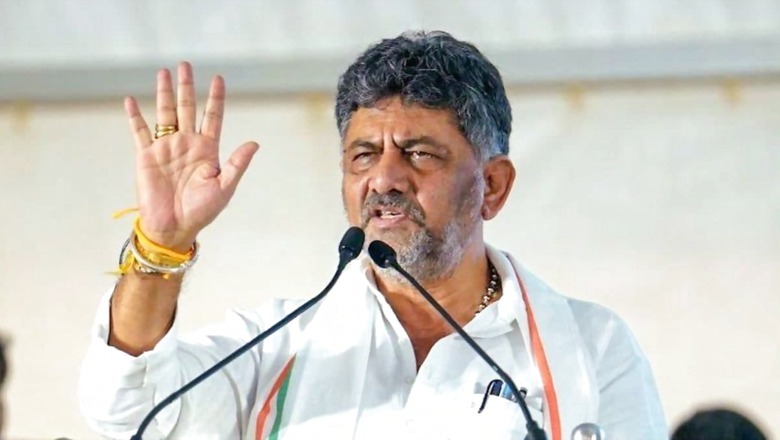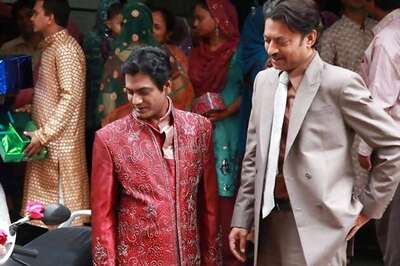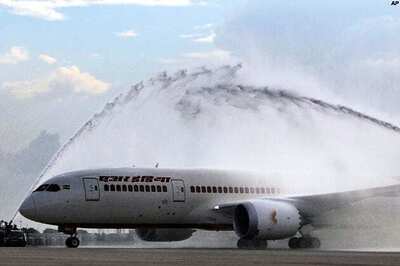
views
Looking to maintain Brand Bengaluru, which has taken quite a beating over the last decade, the Siddaramaiah-led Congress government in Karnataka tabled the ‘Greater Bengaluru Governance Bill 2024’ to “bring in effective governance, political accountability, and improve the quality of life”.
However, this move has sparked another political slugfest between the Congress and the Opposition Bharatiya Janata Party (BJP), with the latter accusing those “who did not belong to the city of making decisions for it solely in the interest of looting and destroying it.”
While a similar exercise for delimitation of Bengaluru was undertaken in the form of bills by previous governments of the BJP and Congress, including increasing the number of wards from the existing 198 to 245, little change was seen on ground. Political critics call this yet another ‘delaying tactic’ for the election to the city civic body, which has been pending since 2020. Despite being labelled a global city and the IT capital of the country, Bengaluru has faced significant challenges due to mismanagement and ineffective governance. The decline in the quality of life has been seen through a steady rise in encroachments on water bodies, concretisation, skyrocketing pollution levels and deteriorating infrastructure.
Deputy Chief Minister D K Shivakumar, who is also the Bengaluru in-charge minister, said Bengaluru belongs to everyone and the Greater Bengaluru Authority (GBA) intends to protect the interests of the city. He stated that the new bill seeks to address these issues by establishing a “decentralized, participative, efficient, and equitable governance framework for Bengaluru”.
RULING GOVERNMENT’S POSITION
Several Congress leaders told News18 the bill was an attempt to bring about a significant governance overhaul intended to manage Bengaluru’s rapid urban expansion while addressing the complexities in infrastructure and city management.
“I may have been born in a village, but I have made Bengaluru my home since the age of five. I not only understand the situation here, but I am also a concerned citizen of Bengaluru. The proposal was to restructure Bengaluru along the lines of the London model, and a committee was formed to design that. I, however, did not agree with completely replacing the system, so a system to modify the existing system to a certain extent has been proposed,” Shivakumar said while tabling the bill.
The bill presented in the Karnataka legislative assembly is a major departure from the Brand Bengaluru Committee’s panel report and looks at not only restructuring the city body, but also breaking the city into “not more than ten zones.” The 114-page bill proposes to divide the city into not more than “10 smaller ‘city corporations” in the Greater Bengaluru region and argued that earlier acts to govern the city were “inadequate and did not institute any mechanisms to address the fragmentation of governance in the city due to the multiplicity of civic agencies and the lack of coordination between them”.
Unlike the draft report submitted by the Brand Bengaluru Committee that specified the GBA should cover 1,400 square kilometres, this bill does not specify the area it covers, leading to ambiguity regarding how much each of the corporations would cover and the actual number of corporations that would be formed under the GBA.
The bill states that the GBA intends to “integrate and streamline political accountability of all public authorities delivering services in the Greater Bengaluru Area.” A meeting of all Bengaluru Congress MLAs and other elected representatives from the city has been called by Shivakumar on July 27 to deliberate on the bill and put forth their suggestions.
“The GBA is an important bill that aims to address the challenges and potential of a growing city like Bengaluru that has seen itself expanding multifold over the years. There is a need for multi-level bodies for effective governance, infrastructure development, and service delivery in Bengaluru. By breaking it down into zones, it will certainly help better management,” said a city Congress legislator who preferred not to be named.
Fast-tracking into the Bengaluru of tomorrowPresenting a run through the double-decker flyover from Ragigudda to Central Silk Board, a boost to the city’s ongoing progress.#DoubleDeckerFlyover #Silkboard #BrandBengaluru pic.twitter.com/VOwPEWqGTB
— DK Shivakumar (@DKShivakumar) July 20, 2024
OPPOSITION QUESTIONS SHIVAKUMAR
Senior leaders such as Leader of Opposition R. Ashok, former law minister Suresh Kumar, and former DCM Dr. C. N. Aswath Narayan called it a move by a “failed government” that could not even handle the debilitating situation Bengaluru is in.
“The Congress government does not understand governance. This is just another pipe dream for D. K. Shivakumar, who wants to create a Bengaluru for himself. They are unable to handle healthcare, education, or infrastructure and have completely destroyed the economy and governance,” said Dr. Ashwath Narayan to News18.
Pointing fingers at Shivakumar, the leader called him one of the biggest disasters who is unable to handle the city’s problems, including curbing dengue, chikungunya, and Zika viruses, and failing in garbage management and education management. “A leader such as him with no good in his mind, what changes can he make to the system? I am making this statement with no political motivation, but with full responsibility and as a concerned citizen of Bengaluru,” Narayan added.
“None of them belong to Bengaluru and now they are looking at looting and destroying it. This is the sorry state of affairs that is there for all to see. The city body has been reduced to a body that builds roads and fills potholes? Even a panchayat has more powers than this,” he said.
Trading barbs with the Opposition, the DCM also said that he was “not foolish to take a decision on the bill solely without taking opposition elders into confidence. It was discussed in the cabinet meeting and it was felt that the Opposition leaders have to buy into the changes. I don’t expect you to approve it as it is,” said Shivakumar on the floor of the house.
According to the bill, the GBA is expected to function as a body responsible for major roads, projects, storm-water drains, and solid waste management, and receive a share of the property tax collected by multiple corporations. This is a complete departure from the suggestions made by the Brand Bengaluru Committee that suggested reforms such as the Mayor-in-Council in corporations and proportional representation in ward committees.
ಸಂವಿಧಾನದ ಆಶಯಗಳನ್ನೇ ಗಾಳಿಗೆ ತೂರಿ ದೇಶಾದ್ಯಂತ ತುರ್ತು ಪರಿಸ್ಥಿತಿ ಹೇರಿದ್ದ ಕಾಂಗ್ರೆಸ್ಸಿಗರು ಬಿಜೆಪಿಯವರಿಗೆ ಸಂವಿಧಾನದ ಪಾಠ ಮಾಡುತ್ತಿರುವುದು ವಿಪರ್ಯಾಸ.ಮುಡಾ ಹಗರಣದ ಆರೋಪ ಎದುರಿಸುತ್ತಿರುವ ಮಾನ್ಯ ಮುಖ್ಯಮಂತ್ರಿ @siddaramaiah ಅವರೇ, ವಾಲ್ಮೀಕಿ ಹಗರಣದಿಂದ ಬಚಾವ್ ಆಗಲು ಎಲ್ಲಿಲ್ಲದ ಪ್ರಯತ್ನ ಮಾಡುತ್ತಿರುವುದೇಕೆ?! ಮುಡಾ ಹಗರಣ… https://t.co/wbFcQ7JAhP
— Dr. C.N. Ashwath Narayan (@drashwathcn) July 20, 2024
THE GBA
A look at the functions of the Greater Bengaluru Authority according to the bill.
FINANCIAL FUNCTIONS
A percentage of the revenues of the City Corporations within the Greater Bengaluru Area shall accrue to the Greater Bengaluru Authority as recommended by the Government. This includes agencies of the City Corporation undertaking specific functions on their behalf, such as Bengaluru Solid Waste Management Limited.
- Approve rates for property tax, property tax rebate rates for payment of full tax within one month of the start of a financial year, extension of the rebate period, and other taxes, fees, cess, and user charges prescribed under this Act for the City Corporations in the Greater Bengaluru Area, with prior approval of the Government.
- Recommend new revenue streams, taxes, and schemes for the City Corporations and other public authorities to the Government.
- Recommend asset management strategies, including land monetization, to the City Corporations and public authorities.
ADMINISTRATIVE FUNCTIONS
The Greater Bengaluru Authority shall exercise administrative functions and powers over the City Corporations’ administration as decided by the Government.
Coordination, Execution and Administration of Plans, Schemes, and Major Projects
- Formulate schemes necessary for implementing various plans prepared by the Greater Bengaluru Authority.
- Coordinate the execution of schemes for the implementation of plans prepared by the Greater Bengaluru Authority and issue binding directions.
- Coordinate and administer major infrastructural and other projects in the Greater Bengaluru Area, including those crossing multiple City Corporations’ jurisdictions.
- Establish and administer Geographical Information Systems, Intelligent Transport Systems, and other information and technology-based solutions for coordinating the development of the Greater Bengaluru Area.
Infrastructure
The Greater Bengaluru Authority shall be responsible for formulating and executing major infrastructural projects in the Greater Bengaluru Area, including those cutting across multiple City Corporations’ jurisdictions. This includes:
- Construction and improvement of arterial roads, elevated expressways, and major flyovers.
- Construction and improvement of the stormwater drain network.
- Administration of the distribution and supply of electricity to main lines.
- Administration of the distribution and supply of water and sewerage to main lines.
Greater Bengaluru Security Force
1. A force called the Greater Bengaluru Security Force shall be constituted and maintained for:
- a. Better protection and security of the property owned by the City Corporations.
- b. Aiding City Corporation officers in detecting and investigating matters relating to revenue leakage or any tax payable to the City Corporation.
- c. Effective communication and obtaining information regarding any design to commit or commission of any offence under this Act.
2. The Greater Bengaluru Security Force shall consist of supervisory officers and members as determined by the Authority and shall be appointed by the Chief Commissioner in accordance with prescribed rules.
3. The Chief Commissioner shall exercise powers of superintendence and control over the Greater Bengaluru Security Force. Matters relating to recruitment and conditions of service, conduct, and discipline of the security force members shall be governed by prescribed rules.




















Comments
0 comment